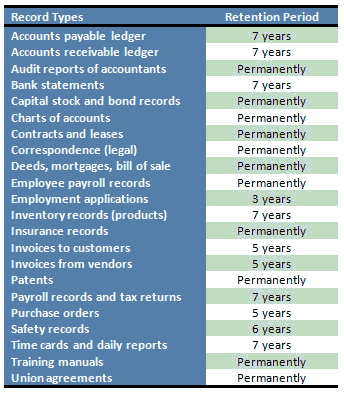Tape versus Disk Debate - Major Backup Strategy Issue
Tape versus Disk Debate - There are many common myths about tape, disk, data protection and archiving, one, for example, being that archiving and long-term data retention are only for regulatory compliance purposes. The reality is that while regulatory compliance data, including Sarbanes-Oxley, ISO, financial or HIPAA medical, require long-term retention, many other common application data for almost every business, including those that do not fall under regulatory requirements, can benefit from - if not require - long–term data retention. The notion is to think beyond regulatory compliance. In other words, organizations of all sizes need and rely on information, both current and past (see also Record Management Policy).
Order Backup Policy Backup Policy Download Selected Pages
In addition to compliance, long-term data retention is needed for many other purposes. For example, information is needed to spot trends, support litigation or other business functions as well as normal functions including research & development, manufacturing and service support, sales and marketing - including customer relationship management (CRM) - along with human resource and accounting or financial activities. Magnetic tape (tape) continues to be relevant as a cost effective, business sustainable and energy efficient proven technology for long-term reliable data retention needs (see also Record Backup and Retention Policy).
There are common myths about backup, data protection, and archiving both for long-term and short-term as well as about different types of data storage mediums and technologies. For example:
| Myth | Reality |
|---|---|
| Disk drives have rendered tape technology obsolete. | Tape evolves (performance, availability, capacity, energy efficiency, density). In addition storage of data on tape media continues to be less expensive than disk and solid state disk (SSD) technology |
| Tape is unreliable and not well suited for long-term data retention. | Digital tape is field proven with the ability to preserve data for decades. The issue that continues to be of concern is the format and version of software and OS used when the data is stored on either media. |
| Tape requires regular maintenance adding to cost and management complexity. | Over time, data on any digital storage media including disk will need to be migrated and validated as electronic data that is stored in a physical media does decay over time. |
| Tape is too slow for use compared to disk-based technologies. | Tape excels at streaming data at high performance rates for bulk retention. |
| Tape compression ratios are inferior to disk-based data deduplication. | Deduplication trades performance to improve disk density capacity benefit vs. tape. |
| There is no new development or technology innovation taking place with tape. |
Tape media and hardware vendors continue to evolve tape for performance, availability, capacity and economics. |
| Debates are about disk vs. tape, solid state disk (SSD) vs. disk and tape. | Instead of debates, discuss what technology is best suited to given tier of service. |
Record retention periods that are mandated include those listed below and need to be considered in this debate (see also Record Management Policy)







